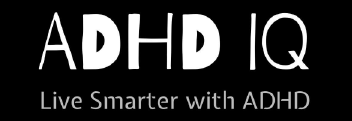
Attention Deficit Hyperactivity Disorder (ADHD) is a common neurodevelopmental disorder affecting both children and adults. Proper diagnosis and treatment of ADHD can be life-changing for those affected. This blog explores the immediate benefits of effectively managing ADHD in both children and adults.
Early Diagnosis in Children
• Improved Academic Performance: Children with untreated ADHD often struggle academically due to difficulties with focus, organization, and completing tasks. Early diagnosis allows for tailored educational strategies and support, which can lead to better academic outcomes. Implementing Individualized Education Programs (IEPs) or 504 plans can provide the necessary accommodations to help these children succeed in school.
• Enhanced Social Skills: ADHD can impact a child’s social interactions, leading to difficulties in forming and maintaining friendships. Early diagnosis and intervention, including behavioral therapy, can teach children essential social skills. These interventions help children develop better relationships with their peers, reducing the risk of social isolation and improving overall well-being.
• Reduced Behavioral Issues: Children with ADHD often exhibit disruptive behaviors, such as impulsivity and hyperactivity, which can lead to disciplinary problems at home and school. Early treatment can help manage these behaviors, resulting in a more harmonious environment for both the child and those around them. Behavioral therapy and parent training programs are effective tools in reducing these issues.
Benefits for Adults
• Enhanced Job Performance: Adults with undiagnosed ADHD may face challenges in the workplace, such as difficulty managing time, staying organized, and meeting deadlines. Proper diagnosis and treatment, including medication and cognitive-behavioral therapy (CBT), can improve these skills. This leads to enhanced job performance, increased productivity, and greater job satisfaction.
• Improved Relationships: ADHD can strain relationships due to misunderstandings, forgetfulness, and impulsive behaviors. Diagnosis and treatment help adults understand and manage their symptoms, leading to healthier and more fulfilling relationships. Couples therapy and support groups can also provide strategies for better communication and conflict resolution.
• Better Mental Health: ADHD in adults is often accompanied by other mental health issues such as anxiety, depression, or substance abuse. Diagnosing and treating ADHD can alleviate these co-existing conditions by addressing the root cause. This comprehensive approach improves overall mental health and reduces the likelihood of self-medication or other harmful coping mechanisms.
Long-Term Benefits
• Higher Quality of Life: Both children and adults with ADHD can experience a significant improvement in their quality of life with proper treatment. By managing symptoms effectively, individuals can achieve their personal and professional goals, leading to a more fulfilling and productive life. This long-term benefit underscores the importance of early diagnosis and continuous management.
• Decreased Risk of Comorbid Conditions: Untreated ADHD increases the risk of developing comorbid conditions such as anxiety, depression, and substance abuse. Proper diagnosis and treatment can prevent these additional health issues, contributing to better overall health outcomes. Early intervention is key to minimizing these risks.
• Cost-Effective in the Long Run: While the initial costs of diagnosing and treating ADHD may seem high, they are cost-effective in the long run. Effective management of ADHD reduces the need for additional healthcare services related to untreated symptoms and comorbid conditions. This economic benefit is particularly significant for families and healthcare systems.
Conclusion
Diagnosing and treating ADHD in children and adults offers numerous pragmatic benefits, from improved academic and job performance to enhanced relationships and better mental health. Early intervention and continuous management are crucial in unlocking these benefits, ultimately leading to a higher quality of life for those affected by ADHD. By addressing this condition proactively, we can ensure that individuals with ADHD have the tools and support they need to thrive.
